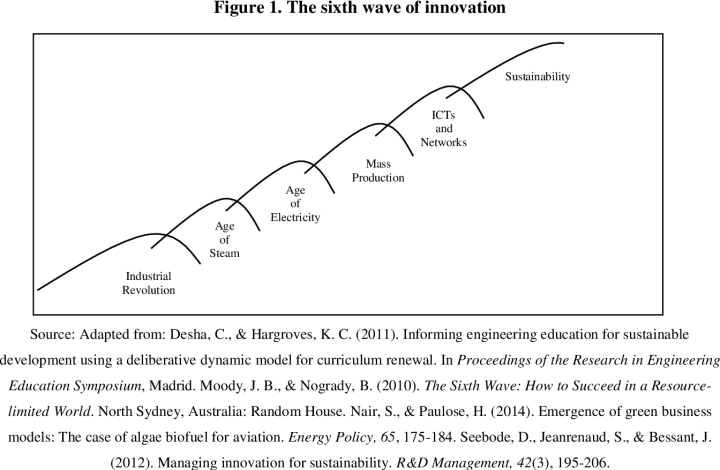With a Senate vote of 18-0-0 in favor of the measure as of May 30, Senate Bill No. 1834 has been approved on third reading. The bill entitled as the Philippine Digital Workforce Competitiveness Act earlier hurdled the House of Representatives with a vote of 230-0-0 in favor of House Bill No. 6926 on August 11, 2020.
In his manifestation on the third reading of the proposed measure, Senator Joel Villanueva emphasized catching up to the Fourth Industrial Revolution: “Kailangan po natin ng paradigm na magtatahi o magsisinsin ng lahat ng efforts and initiatives ng pamahalaan pertaining to digital competitiveness of the Filipino workforce.”
Villanueva is currently the Senate Labor, Employment and Human Resources Development Committee Chair, one of the three Senate committees which prepared the bill. The rest would be Finance, and Science and Technology.
Then again, what would this legislation bring to the table for our digital workers? This concise article will attempt to present its salient points primarily based on the provisions of Senate Bill No. 1834.

Aims and objectives
- Ensure and take pro-active measures to improve the digital competence of all citizens of working age and equip them with digital skills.
- Ensure that Filipinos are equipped with digital skills and 21st century skills. This refers to skills that are required by new jobs, including but not limited to critical thinking, problem solving, good communication, collaboration, information and technology literacy, flexibility and adaptability, innovativeness, and creativity, among others.
- Ensure adequate protection and support for the digital workforce for the continuous improvement of their skills to effectively keep up with global standards.
- Provide support to the digital workforce through the provision of co-working or shared service facilities and loan facilities with concessional terms.
- Ensure digital inclusion by taking into account special needs of sectors such as, but not limited to, persons with disabilities (PWDs), indigenous peoples, senior citizens, individuals located in geographically-isolated and disadvantaged areas (GIDA), and other sectors.
- Ensure that all stakeholders from the government, industry and labor sector are properly consulted and in collaboration in the crafting of policies, programs, activities and projects for the upskilling, re-skilling and training of the Filipino workforce in digital technology and innovations.
Creation of implementing body
The Inter-Agency Council for Development and Competitiveness of Philippine Digital Workforce would be tasked for the promotion, development, enhancement, and competitiveness of the Filipino digital workforce. It would also serve as provider of innovative strategies and incentives concerning digital technology such as the following:
- Full or partial scholarships or subsidies for appropriate trainings and certifications, whether local or abroad.
- Full or partial subsidy for the use of co-working or shared service facilities, equipment, and/or services provided by government or private enterprises or institutions.
- Credit assistance, at low interest rate, from government financial institutions for acquisition of equipment necessary to carry out digital work, including but not limited to computers, hardware and software programs.
- Afford priority access to Department of Trade and Industry (DTI) support and assistance, under its program for start-ups and for micro, small and medium enterprises (MSMEs), to digital entrepreneurs, tech start-ups or innovators.
The proposed council would be chaired by the National Economic and Development Authority (NEDA), and would be composed of DTI, Department of Labor and Employment (DOLE), Department of Information and Communications Technology (DICT), Department of Science and Technology (DOST), Department of Interior and Local Government (DILG), Department of Education (DepEd), Commission on Higher Education (CHED), and Technical Education and Skills Development Authority (TESDA) as members. Whole-of-government approach appears to be the principle behind this unification of efforts from the respective agencies.
The House version does not appear to have a similar provision forming a dedicated council, but has designated certain agencies to lead the implementation of its provisions.
- DICT and DepEd on programs to ensure access to trainings and other forms of support for digital careers.
- DOLE and DTI on ensuring the standards for digital workers such as wages and registration processes.
- DILG on compliance of local government units (LGUs) to create policies supporting digital careers.
- DICT, Department of Budget and Management (DBM), Department of Public Works and Highways (DPWH) and other relevant agencies on ensuring universal access to “high-speed, quality, and affordable” internet.
- DICT on the creation of digital skill trainings; TESDA on the allocation of scholarships to LGUs.
- DICT and National Library of the Philippines (NLP) on transforming libraries as digital access providers.
- DOLE and DICT on the promulgation of the rules and regulations of the legislation.
Public-private partnerships with experts, information technology and business process outsourcing (IT-BPO) industry associations, private firms, and other stakeholders are authorized for the formulation and implementation of training, skills development, and certification programs. There is also a provision on establishing co-working or shared service facilities.
Digital Workforce Week
Intended to coincide with the National Information and Communications Technology (ICT) Month every June, the Digital Workforce Week is proposed to be observed every third week of June to promote awareness on jobs and skills requirements on digital technology and innovation. To recall, the National ICT Month was earlier mandated by Proclamation No. 1521, s. 2008.

Conclusion
To date, the Philippines seems to be lagging behind other nations when it comes to digital competitiveness. As of 2022, monthly financial magazine Global Finance ranked the Philippines as 61st out of 64 nations in terms of technological strength with a composite score of negative 5.51, besting Colombia (62), Mongolia (63), and Venezuela (64). In its 2021 list, meanwhile, the IMD World Digital Competitiveness Ranking placed the Philippines at 58th out of 64 countries, declining from its 2020 rank of 57th. It remains to be seen how effective this measure would be serving as legal framework on improving the adoption and integration of digital technology in Filipino society.
Nonetheless, the reality that our government is currently looking at the impact of current digital developments to the future of work may well be commendable. Digitalization is transforming the path of industrialization for emerging economies, as some are already theorizing on the Fifth and Sixth Industrial Revolution (Industry 5.0 and Industry 6.0). Perhaps the Philippines would have to face these “industrialization waves” simultaneously since we have taken quantum leaps in certain technological paces which were otherwise quite progressive for other economies.
Take for example the Filipino transition from telephones to the web – the Philippines had a relatively low penetration of fixed lines (4 main lines per 100 inhabitants as of 2000) when it experienced a mobile and internet boom. Another example would be the development of the Philippines as an electronics exporter. As late as 1992, the top Filipino export product group was still apparel and clothing accessories. In the years after, electronics would solidify its spot as the top export product group of the Philippines. Apparently, the economy skipped to the digital age from the textile era. Taking these economic trends into mind moving forward might help in the framework’s implementation.

























